Why Is the Possibility of Revising Iran’s Nuclear Doctrine Raised
Strategic Council Online – Note: Iran has done more than its share for the nuclear non-proliferation regime.
Strategic Council Online – Note: Iran has done more than its share for the nuclear non-proliferation regime.
Strategic Council Online: The President of the Strategic Council on Foreign Relations stated: “The US State Department spokesperson, after my interview with Al Jazeera, reiterated their past remarks, stating that they won’t allow Iran to build nuclear weapons, but ultimately said diplomacy is the best approach. Yes, we too prefer diplomacy since based on the Fatwa of our Supreme Leader are not for nuclear weapons; rather, we are advocates of diplomacy to make the Middle East a nuclear-free region. But, in case the Israeli regime threatens us with nuclear weapons, we surely cannot sit idle and wait for permission from others.”
Strategic Council Online – Opinion: The strategic Strait of Bab al-Mandab and the Red Sea have recently faced serious problems and crises due to the Gaza war. This is because of the protectionist approach of the Yemeni army forces toward Palestine, which, since the beginning of the Israeli regime’s attacks on the Gaza Strip, has included attacks on ships bound for or from the origin of the regime in the Red Sea.
They said they will continue their attacks until the Israeli regime’s military aggression in the Gaza Strip ends. The United States, as the most important supporter of the Israeli regime, was the first country to respond to this policy of Yemeni army forces and tried to form a global coalition to counter these attacks under the cover of supporting freedom of navigation, which, of course, failed because of conflicts of interests of Western countries and ended in the actions of the US and British attacks on positions in Yemen. Of course, although European countries were not seriously involved in the American coalition, they have numerous and complex interests in this inflammatory, and as a result, have adopted a particular and independent approach.
Dr. Mohammad Mehdi Mazaheri – University Professor
Strategic Council Online – Interview: An expert on regional issues said Qatari authorities will definitely resist Western pressure to expel Hamas leaders from their territory, and probably the United States will not move towards a zero-hundred equation in this regard because if the Hamas leaders remain in Qatar, which is an ally of the United States, is better than moving to a country outside the power of the United States to exert pressure.
Strategic Council Online – Opinion: Student protests in America take on new dimensions every day.
Because the university enjoys higher public trust and social capital than other civil and social institutions and is, therefore, more effective, the current protests put the U.S. government in a “difficult situation” that is clear in the statements of current and former U.S. officials.
Hamid Khoshayand – International Affairs Expert
Strategic Council Online: The 3rd Iranian-Arab Dialogue Conference, titled “For Cooperation and Interaction,” will be inaugurated on April 23rd in Tehran, hosted by the Strategic Council on Foreign Relations.
Strategic Council Online – Interview: An expert on Caucasus issues said that Swedish Foreign Minister Tobias Billström recently announced that EU states plan to include the ban on the supply of liquefied natural gas (LNG) in the sanctions against Russia.
Strategic Council Online—Interview: An expert on strategic issues said: The US Navy has put a project on the agenda to convert surplus oil platforms into mobile missile defense bases in the Pacific Ocean and face China’s threats. These platforms are supposed to be deployed in response to China’s growing missile threats in the Pacific region. Platforms converted into missile defense bases are expected to play an important role in increasing US air defense capabilities and assisting in the country’s strike missions.


Strategic Council Online – Note: After the victory of the Islamic Revolution, relations between Iran and Egypt have been maintained at the level of the ‘interest section.’ Before anything else, this situation resulted from the “security vision” Egypt’s foreign policy adopted towards Iran, in addition to Cairo’s compliance with certain regional players and international pressures, especially from the United States.
Hamid Khoshayand – expert on regional issues
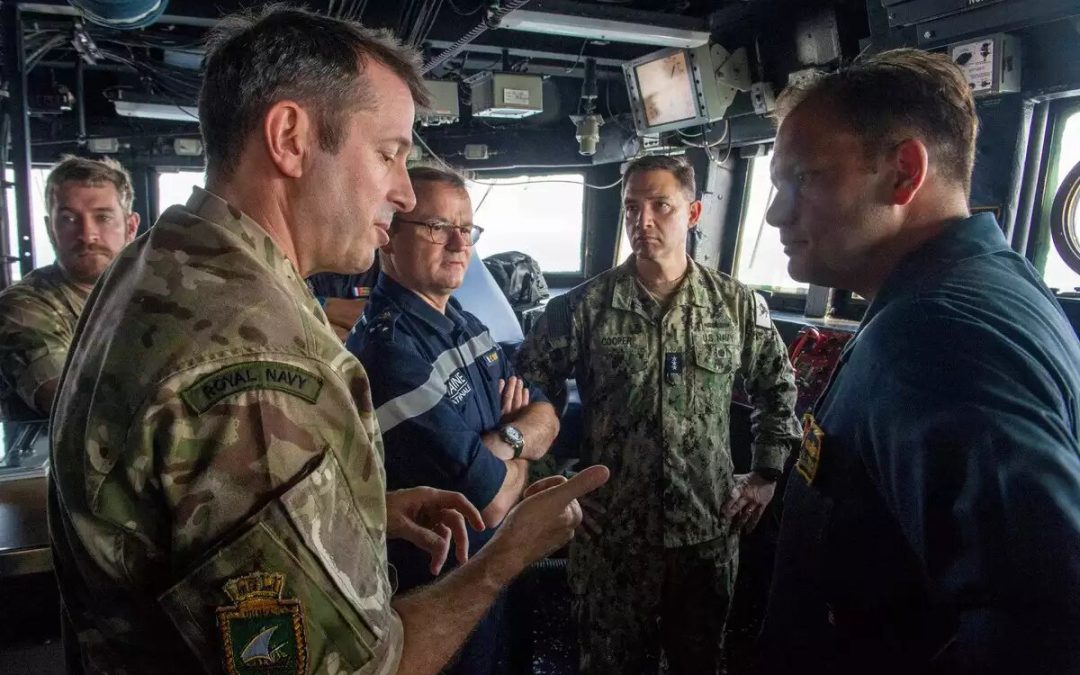
Strategic Council Online – Opinion: In a situation where Western countries and the United States are not ready to take action to stop the crimes of the Zionist regime in Gaza, apparently, the only concern they have is the freedom of trade and shipping in the Red Sea!
Dr. Mohammad Mehdi Mazaheri – University professor
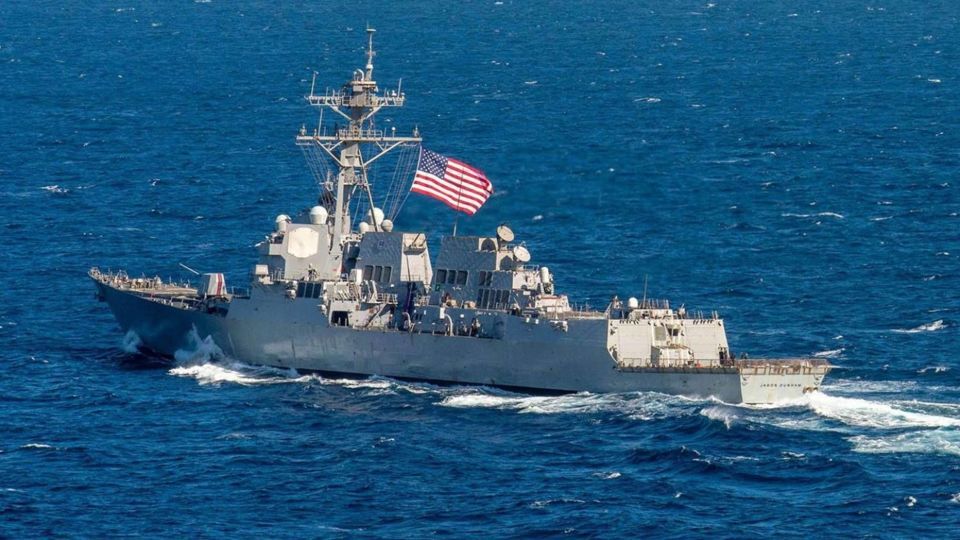
Strategic Council Online—Interview: The United States of America has recently announced that it will form a regional naval coalition to face Yemen’s Ansarollah attacks in the Red Sea. A coalition that showed its weakness from the beginning by failing to have the support of the Arab countries, and among the Arab countries, only Bahrain joined it.
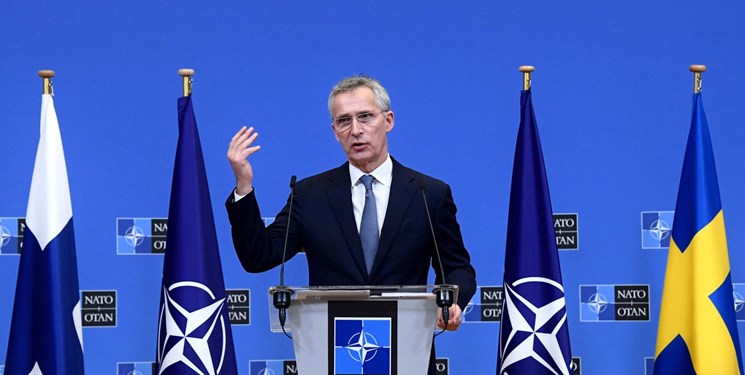
Strategic Council Online – Interview: An international affairs expert believes launching US military bases in Finland was not unusual or unpredictable. By becoming a member of NATO, that country is committed to providing bases to NATO members, especially the largest NATO member, the United States.
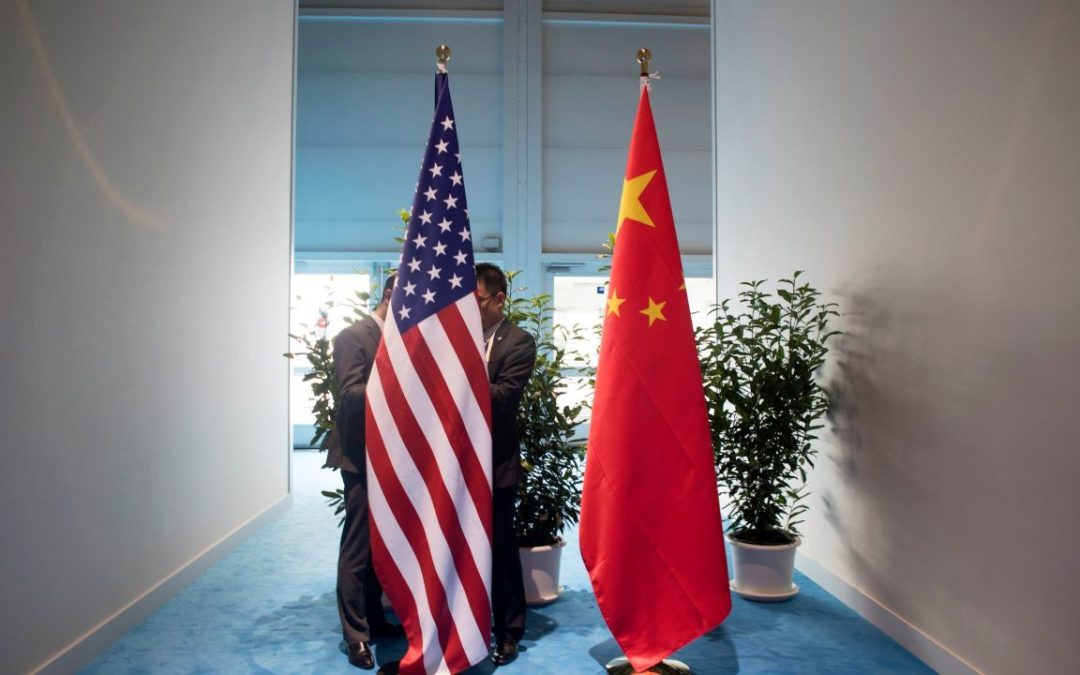
Strategic Council Online—Interview: An expert on international affairs said the US plan to deploy medium-range missiles in East Asia aims to create an offensive capability against China, adding that naturally, the deployment of these missiles by the United States in countries such as Australia or possibly in Japan and South Korea can lead to China’s counter-reaction and increase the level of tensions between the two countries.

Strategic Council Online-Opinion: During the past few days, the Gaza Strip witnessed a temporary ceasefire for the mutual release of Zionist and Palestinian prisoners and limited aid to Gaza. The ceasefire was finally implemented not because of respect for the UN General Assembly vote or the Security Council resolution but because of political negotiations, the mediation of Qatar, and the United States’s green light.
Mohammad Mehdi Mazaheri—University professor
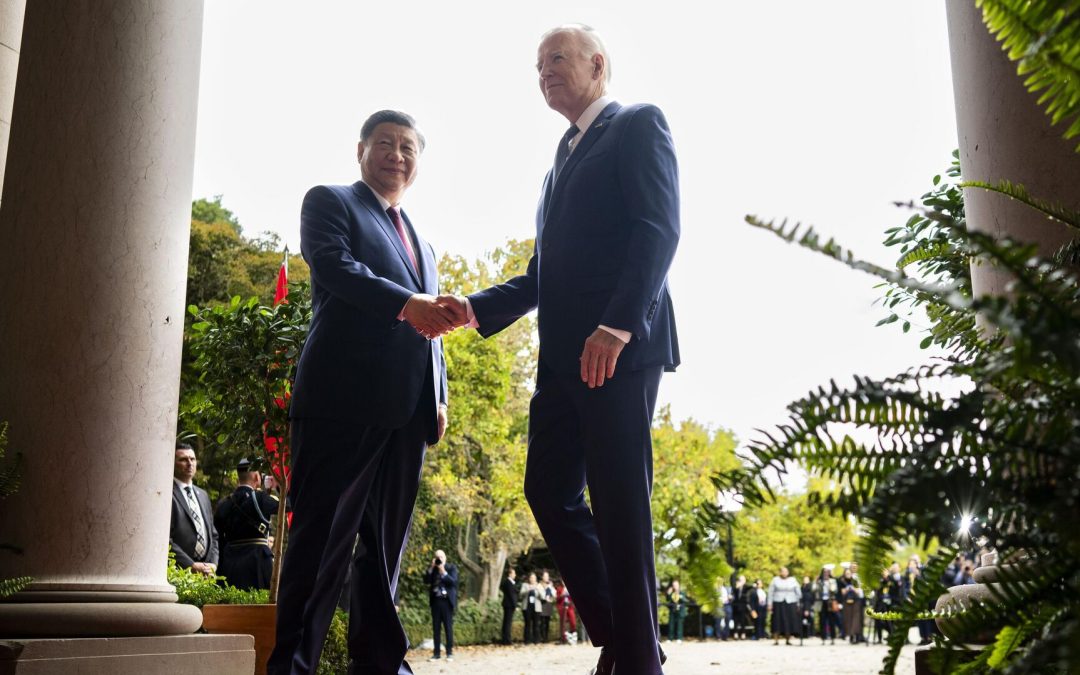
Strategic Council Online – Interview: A faculty member of the Institute of Strategic Studies said that it should be seen whether the Chinese will violate the agreement to re-establish military relations with the United States due to Biden’s calling Xi Jinping a dictator, added: If once again they conclude that establishment of relations between the military forces of the two countries should be delayed, it shows that the recent meeting between the two presidents has not been successful.
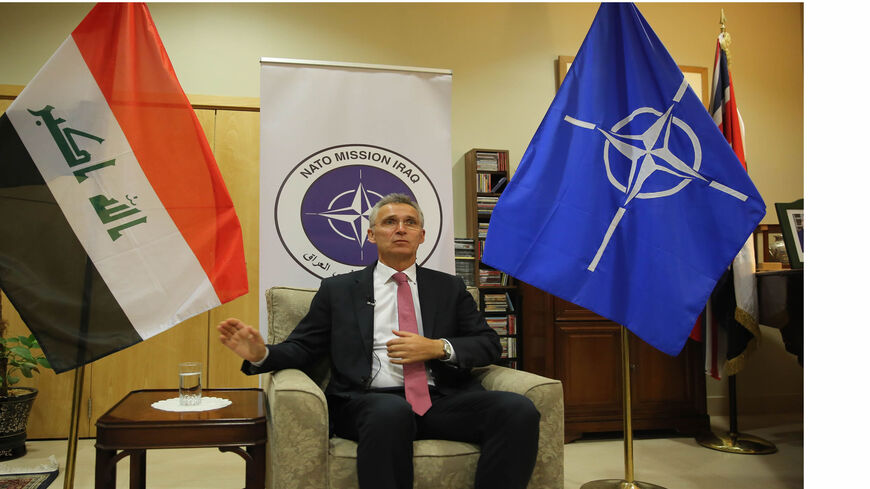
Strategic Council Online – Interview: An international relations professor said that although NATO’s training mission for the Iraqi police forces is carried out in line with preventing ISIS from regaining power, in fact, NATO has decided to develop the scope of its mission in Iraq, noted: NATO, and the United States at its head, is looking for influence in the social body of Arab countries, especially Iraq, to advance its targets while shaping the intellectual formation and organizing the police body against the Resistance.
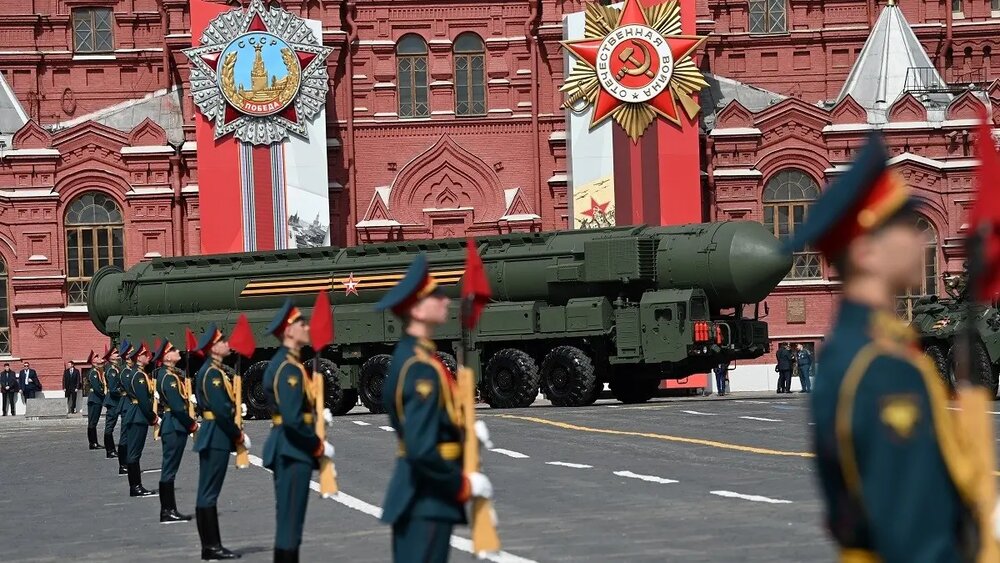
Strategic Council Online – Interview: An international relations professor stated that Russia, after withdrawing ratification of the Comprehensive Nuclear-Test-Ban Treaty, found itself in a situation similar to the United States, adding: The CTBT helped define nuclear de-escalation after the Cold War, but now, with both sides reducing their commitments to the treaty, speculations may begin about the possibility of nuclear tests.
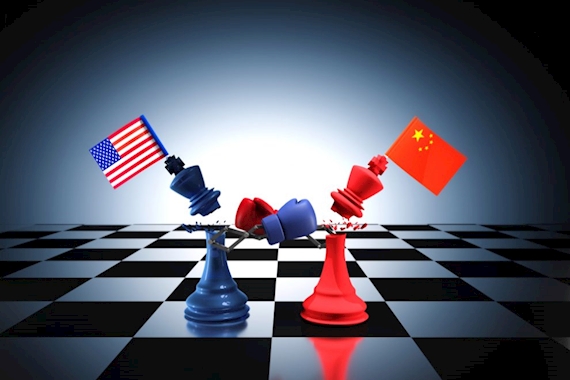
Strategic Council Online – Interview: A university professor saying that the differences between China and the United States cannot be resolved through negotiations, added: The United States will do everything in order not to lose its position, and there is this possibility that if a third world war breaks out between the West and China it will be on taking the lead and winning the first place in GDP, and this will happen sooner or later.
Strategic Council Online – Note: Iran has done more than its share for the nuclear non-proliferation regime.
Strategic Council Online: The President of the Strategic Council on Foreign Relations stated: “The US State Department spokesperson, after my interview with Al Jazeera, reiterated their past remarks, stating that they won’t allow Iran to build nuclear weapons, but ultimately said diplomacy is the best approach. Yes, we too prefer diplomacy since based on the Fatwa of our Supreme Leader are not for nuclear weapons; rather, we are advocates of diplomacy to make the Middle East a nuclear-free region. But, in case the Israeli regime threatens us with nuclear weapons, we surely cannot sit idle and wait for permission from others.”
Strategic Council Online – Opinion: The strategic Strait of Bab al-Mandab and the Red Sea have recently faced serious problems and crises due to the Gaza war. This is because of the protectionist approach of the Yemeni army forces toward Palestine, which, since the beginning of the Israeli regime’s attacks on the Gaza Strip, has included attacks on ships bound for or from the origin of the regime in the Red Sea.
They said they will continue their attacks until the Israeli regime’s military aggression in the Gaza Strip ends. The United States, as the most important supporter of the Israeli regime, was the first country to respond to this policy of Yemeni army forces and tried to form a global coalition to counter these attacks under the cover of supporting freedom of navigation, which, of course, failed because of conflicts of interests of Western countries and ended in the actions of the US and British attacks on positions in Yemen. Of course, although European countries were not seriously involved in the American coalition, they have numerous and complex interests in this inflammatory, and as a result, have adopted a particular and independent approach.
Dr. Mohammad Mehdi Mazaheri – University Professor
Strategic Council Online – Interview: An expert on regional issues said Qatari authorities will definitely resist Western pressure to expel Hamas leaders from their territory, and probably the United States will not move towards a zero-hundred equation in this regard because if the Hamas leaders remain in Qatar, which is an ally of the United States, is better than moving to a country outside the power of the United States to exert pressure.
Strategic Council Online – Opinion: Student protests in America take on new dimensions every day.
Because the university enjoys higher public trust and social capital than other civil and social institutions and is, therefore, more effective, the current protests put the U.S. government in a “difficult situation” that is clear in the statements of current and former U.S. officials.
Hamid Khoshayand – International Affairs Expert
Strategic Council Online: The 3rd Iranian-Arab Dialogue Conference, titled “For Cooperation and Interaction,” will be inaugurated on April 23rd in Tehran, hosted by the Strategic Council on Foreign Relations.
Strategic Council Online – Interview: An expert on Caucasus issues said that Swedish Foreign Minister Tobias Billström recently announced that EU states plan to include the ban on the supply of liquefied natural gas (LNG) in the sanctions against Russia.
Strategic Council Online—Interview: An expert on strategic issues said: The US Navy has put a project on the agenda to convert surplus oil platforms into mobile missile defense bases in the Pacific Ocean and face China’s threats. These platforms are supposed to be deployed in response to China’s growing missile threats in the Pacific region. Platforms converted into missile defense bases are expected to play an important role in increasing US air defense capabilities and assisting in the country’s strike missions.


Strategic Council Online – Note: After the victory of the Islamic Revolution, relations between Iran and Egypt have been maintained at the level of the ‘interest section.’ Before anything else, this situation resulted from the “security vision” Egypt’s foreign policy adopted towards Iran, in addition to Cairo’s compliance with certain regional players and international pressures, especially from the United States.
Hamid Khoshayand – expert on regional issues

Strategic Council Online – Opinion: In a situation where Western countries and the United States are not ready to take action to stop the crimes of the Zionist regime in Gaza, apparently, the only concern they have is the freedom of trade and shipping in the Red Sea!
Dr. Mohammad Mehdi Mazaheri – University professor

Strategic Council Online—Interview: The United States of America has recently announced that it will form a regional naval coalition to face Yemen’s Ansarollah attacks in the Red Sea. A coalition that showed its weakness from the beginning by failing to have the support of the Arab countries, and among the Arab countries, only Bahrain joined it.

Strategic Council Online – Interview: An international affairs expert believes launching US military bases in Finland was not unusual or unpredictable. By becoming a member of NATO, that country is committed to providing bases to NATO members, especially the largest NATO member, the United States.

Strategic Council Online—Interview: An expert on international affairs said the US plan to deploy medium-range missiles in East Asia aims to create an offensive capability against China, adding that naturally, the deployment of these missiles by the United States in countries such as Australia or possibly in Japan and South Korea can lead to China’s counter-reaction and increase the level of tensions between the two countries.

Strategic Council Online-Opinion: During the past few days, the Gaza Strip witnessed a temporary ceasefire for the mutual release of Zionist and Palestinian prisoners and limited aid to Gaza. The ceasefire was finally implemented not because of respect for the UN General Assembly vote or the Security Council resolution but because of political negotiations, the mediation of Qatar, and the United States’s green light.
Mohammad Mehdi Mazaheri—University professor

Strategic Council Online – Interview: A faculty member of the Institute of Strategic Studies said that it should be seen whether the Chinese will violate the agreement to re-establish military relations with the United States due to Biden’s calling Xi Jinping a dictator, added: If once again they conclude that establishment of relations between the military forces of the two countries should be delayed, it shows that the recent meeting between the two presidents has not been successful.

Strategic Council Online – Interview: An international relations professor said that although NATO’s training mission for the Iraqi police forces is carried out in line with preventing ISIS from regaining power, in fact, NATO has decided to develop the scope of its mission in Iraq, noted: NATO, and the United States at its head, is looking for influence in the social body of Arab countries, especially Iraq, to advance its targets while shaping the intellectual formation and organizing the police body against the Resistance.

Strategic Council Online – Interview: An international relations professor stated that Russia, after withdrawing ratification of the Comprehensive Nuclear-Test-Ban Treaty, found itself in a situation similar to the United States, adding: The CTBT helped define nuclear de-escalation after the Cold War, but now, with both sides reducing their commitments to the treaty, speculations may begin about the possibility of nuclear tests.

Strategic Council Online – Interview: A university professor saying that the differences between China and the United States cannot be resolved through negotiations, added: The United States will do everything in order not to lose its position, and there is this possibility that if a third world war breaks out between the West and China it will be on taking the lead and winning the first place in GDP, and this will happen sooner or later.

Strategic Council Online – Note: After the victory of the Islamic Revolution, relations between Iran and Egypt have been maintained at the level of the ‘interest section.’ Before anything else, this situation resulted from the “security vision” Egypt’s foreign policy adopted towards Iran, in addition to Cairo’s compliance with certain regional players and international pressures, especially from the United States.
Hamid Khoshayand – expert on regional issues

Strategic Council Online – Opinion: In a situation where Western countries and the United States are not ready to take action to stop the crimes of the Zionist regime in Gaza, apparently, the only concern they have is the freedom of trade and shipping in the Red Sea!
Dr. Mohammad Mehdi Mazaheri – University professor

Strategic Council Online—Interview: The United States of America has recently announced that it will form a regional naval coalition to face Yemen’s Ansarollah attacks in the Red Sea. A coalition that showed its weakness from the beginning by failing to have the support of the Arab countries, and among the Arab countries, only Bahrain joined it.

Strategic Council Online – Interview: An international affairs expert believes launching US military bases in Finland was not unusual or unpredictable. By becoming a member of NATO, that country is committed to providing bases to NATO members, especially the largest NATO member, the United States.

Strategic Council Online—Interview: An expert on international affairs said the US plan to deploy medium-range missiles in East Asia aims to create an offensive capability against China, adding that naturally, the deployment of these missiles by the United States in countries such as Australia or possibly in Japan and South Korea can lead to China’s counter-reaction and increase the level of tensions between the two countries.

Strategic Council Online-Opinion: During the past few days, the Gaza Strip witnessed a temporary ceasefire for the mutual release of Zionist and Palestinian prisoners and limited aid to Gaza. The ceasefire was finally implemented not because of respect for the UN General Assembly vote or the Security Council resolution but because of political negotiations, the mediation of Qatar, and the United States’s green light.
Mohammad Mehdi Mazaheri—University professor

Strategic Council Online – Interview: A faculty member of the Institute of Strategic Studies said that it should be seen whether the Chinese will violate the agreement to re-establish military relations with the United States due to Biden’s calling Xi Jinping a dictator, added: If once again they conclude that establishment of relations between the military forces of the two countries should be delayed, it shows that the recent meeting between the two presidents has not been successful.

Strategic Council Online – Interview: An international relations professor said that although NATO’s training mission for the Iraqi police forces is carried out in line with preventing ISIS from regaining power, in fact, NATO has decided to develop the scope of its mission in Iraq, noted: NATO, and the United States at its head, is looking for influence in the social body of Arab countries, especially Iraq, to advance its targets while shaping the intellectual formation and organizing the police body against the Resistance.

Strategic Council Online – Interview: An international relations professor stated that Russia, after withdrawing ratification of the Comprehensive Nuclear-Test-Ban Treaty, found itself in a situation similar to the United States, adding: The CTBT helped define nuclear de-escalation after the Cold War, but now, with both sides reducing their commitments to the treaty, speculations may begin about the possibility of nuclear tests.

Strategic Council Online – Interview: A university professor saying that the differences between China and the United States cannot be resolved through negotiations, added: The United States will do everything in order not to lose its position, and there is this possibility that if a third world war breaks out between the West and China it will be on taking the lead and winning the first place in GDP, and this will happen sooner or later.
Strategic Council Online – Note: Iran has done more than its share for the nuclear non-proliferation regime.
Strategic Council Online: The President of the Strategic Council on Foreign Relations stated: “The US State Department spokesperson, after my interview with Al Jazeera, reiterated their past remarks, stating that they won’t allow Iran to build nuclear weapons, but ultimately said diplomacy is the best approach. Yes, we too prefer diplomacy since based on the Fatwa of our Supreme Leader are not for nuclear weapons; rather, we are advocates of diplomacy to make the Middle East a nuclear-free region. But, in case the Israeli regime threatens us with nuclear weapons, we surely cannot sit idle and wait for permission from others.”
Strategic Council Online – Opinion: The strategic Strait of Bab al-Mandab and the Red Sea have recently faced serious problems and crises due to the Gaza war. This is because of the protectionist approach of the Yemeni army forces toward Palestine, which, since the beginning of the Israeli regime’s attacks on the Gaza Strip, has included attacks on ships bound for or from the origin of the regime in the Red Sea.
They said they will continue their attacks until the Israeli regime’s military aggression in the Gaza Strip ends. The United States, as the most important supporter of the Israeli regime, was the first country to respond to this policy of Yemeni army forces and tried to form a global coalition to counter these attacks under the cover of supporting freedom of navigation, which, of course, failed because of conflicts of interests of Western countries and ended in the actions of the US and British attacks on positions in Yemen. Of course, although European countries were not seriously involved in the American coalition, they have numerous and complex interests in this inflammatory, and as a result, have adopted a particular and independent approach.
Dr. Mohammad Mehdi Mazaheri – University Professor
Strategic Council Online – Interview: An expert on regional issues said Qatari authorities will definitely resist Western pressure to expel Hamas leaders from their territory, and probably the United States will not move towards a zero-hundred equation in this regard because if the Hamas leaders remain in Qatar, which is an ally of the United States, is better than moving to a country outside the power of the United States to exert pressure.
Strategic Council Online – Opinion: Student protests in America take on new dimensions every day.
Because the university enjoys higher public trust and social capital than other civil and social institutions and is, therefore, more effective, the current protests put the U.S. government in a “difficult situation” that is clear in the statements of current and former U.S. officials.
Hamid Khoshayand – International Affairs Expert
Strategic Council Online: The 3rd Iranian-Arab Dialogue Conference, titled “For Cooperation and Interaction,” will be inaugurated on April 23rd in Tehran, hosted by the Strategic Council on Foreign Relations.
Strategic Council Online – Interview: An expert on Caucasus issues said that Swedish Foreign Minister Tobias Billström recently announced that EU states plan to include the ban on the supply of liquefied natural gas (LNG) in the sanctions against Russia.
Strategic Council Online—Interview: An expert on strategic issues said: The US Navy has put a project on the agenda to convert surplus oil platforms into mobile missile defense bases in the Pacific Ocean and face China’s threats. These platforms are supposed to be deployed in response to China’s growing missile threats in the Pacific region. Platforms converted into missile defense bases are expected to play an important role in increasing US air defense capabilities and assisting in the country’s strike missions.


Strategic Council Online – Note: After the victory of the Islamic Revolution, relations between Iran and Egypt have been maintained at the level of the ‘interest section.’ Before anything else, this situation resulted from the “security vision” Egypt’s foreign policy adopted towards Iran, in addition to Cairo’s compliance with certain regional players and international pressures, especially from the United States.
Hamid Khoshayand – expert on regional issues

Strategic Council Online – Opinion: In a situation where Western countries and the United States are not ready to take action to stop the crimes of the Zionist regime in Gaza, apparently, the only concern they have is the freedom of trade and shipping in the Red Sea!
Dr. Mohammad Mehdi Mazaheri – University professor

Strategic Council Online—Interview: The United States of America has recently announced that it will form a regional naval coalition to face Yemen’s Ansarollah attacks in the Red Sea. A coalition that showed its weakness from the beginning by failing to have the support of the Arab countries, and among the Arab countries, only Bahrain joined it.

Strategic Council Online – Interview: An international affairs expert believes launching US military bases in Finland was not unusual or unpredictable. By becoming a member of NATO, that country is committed to providing bases to NATO members, especially the largest NATO member, the United States.

Strategic Council Online—Interview: An expert on international affairs said the US plan to deploy medium-range missiles in East Asia aims to create an offensive capability against China, adding that naturally, the deployment of these missiles by the United States in countries such as Australia or possibly in Japan and South Korea can lead to China’s counter-reaction and increase the level of tensions between the two countries.

Strategic Council Online-Opinion: During the past few days, the Gaza Strip witnessed a temporary ceasefire for the mutual release of Zionist and Palestinian prisoners and limited aid to Gaza. The ceasefire was finally implemented not because of respect for the UN General Assembly vote or the Security Council resolution but because of political negotiations, the mediation of Qatar, and the United States’s green light.
Mohammad Mehdi Mazaheri—University professor

Strategic Council Online – Interview: A faculty member of the Institute of Strategic Studies said that it should be seen whether the Chinese will violate the agreement to re-establish military relations with the United States due to Biden’s calling Xi Jinping a dictator, added: If once again they conclude that establishment of relations between the military forces of the two countries should be delayed, it shows that the recent meeting between the two presidents has not been successful.

Strategic Council Online – Interview: An international relations professor said that although NATO’s training mission for the Iraqi police forces is carried out in line with preventing ISIS from regaining power, in fact, NATO has decided to develop the scope of its mission in Iraq, noted: NATO, and the United States at its head, is looking for influence in the social body of Arab countries, especially Iraq, to advance its targets while shaping the intellectual formation and organizing the police body against the Resistance.

Strategic Council Online – Interview: An international relations professor stated that Russia, after withdrawing ratification of the Comprehensive Nuclear-Test-Ban Treaty, found itself in a situation similar to the United States, adding: The CTBT helped define nuclear de-escalation after the Cold War, but now, with both sides reducing their commitments to the treaty, speculations may begin about the possibility of nuclear tests.

Strategic Council Online – Interview: A university professor saying that the differences between China and the United States cannot be resolved through negotiations, added: The United States will do everything in order not to lose its position, and there is this possibility that if a third world war breaks out between the West and China it will be on taking the lead and winning the first place in GDP, and this will happen sooner or later.
Strategic Council Online – Note: Iran has done more than its share for the nuclear non-proliferation regime.
Strategic Council Online: The President of the Strategic Council on Foreign Relations stated: “The US State Department spokesperson, after my interview with Al Jazeera, reiterated their past remarks, stating that they won’t allow Iran to build nuclear weapons, but ultimately said diplomacy is the best approach. Yes, we too prefer diplomacy since based on the Fatwa of our Supreme Leader are not for nuclear weapons; rather, we are advocates of diplomacy to make the Middle East a nuclear-free region. But, in case the Israeli regime threatens us with nuclear weapons, we surely cannot sit idle and wait for permission from others.”
Strategic Council Online – Opinion: The strategic Strait of Bab al-Mandab and the Red Sea have recently faced serious problems and crises due to the Gaza war. This is because of the protectionist approach of the Yemeni army forces toward Palestine, which, since the beginning of the Israeli regime’s attacks on the Gaza Strip, has included attacks on ships bound for or from the origin of the regime in the Red Sea.
They said they will continue their attacks until the Israeli regime’s military aggression in the Gaza Strip ends. The United States, as the most important supporter of the Israeli regime, was the first country to respond to this policy of Yemeni army forces and tried to form a global coalition to counter these attacks under the cover of supporting freedom of navigation, which, of course, failed because of conflicts of interests of Western countries and ended in the actions of the US and British attacks on positions in Yemen. Of course, although European countries were not seriously involved in the American coalition, they have numerous and complex interests in this inflammatory, and as a result, have adopted a particular and independent approach.
Dr. Mohammad Mehdi Mazaheri – University Professor
Strategic Council Online – Interview: An expert on regional issues said Qatari authorities will definitely resist Western pressure to expel Hamas leaders from their territory, and probably the United States will not move towards a zero-hundred equation in this regard because if the Hamas leaders remain in Qatar, which is an ally of the United States, is better than moving to a country outside the power of the United States to exert pressure.
Strategic Council Online – Opinion: Student protests in America take on new dimensions every day.
Because the university enjoys higher public trust and social capital than other civil and social institutions and is, therefore, more effective, the current protests put the U.S. government in a “difficult situation” that is clear in the statements of current and former U.S. officials.
Hamid Khoshayand – International Affairs Expert
Strategic Council Online: The 3rd Iranian-Arab Dialogue Conference, titled “For Cooperation and Interaction,” will be inaugurated on April 23rd in Tehran, hosted by the Strategic Council on Foreign Relations.
Strategic Council Online – Interview: An expert on Caucasus issues said that Swedish Foreign Minister Tobias Billström recently announced that EU states plan to include the ban on the supply of liquefied natural gas (LNG) in the sanctions against Russia.
Strategic Council Online—Interview: An expert on strategic issues said: The US Navy has put a project on the agenda to convert surplus oil platforms into mobile missile defense bases in the Pacific Ocean and face China’s threats. These platforms are supposed to be deployed in response to China’s growing missile threats in the Pacific region. Platforms converted into missile defense bases are expected to play an important role in increasing US air defense capabilities and assisting in the country’s strike missions.
